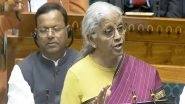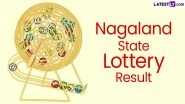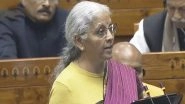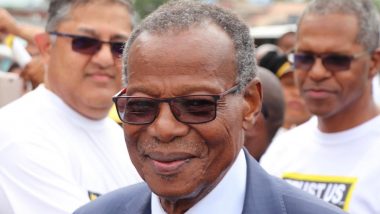Johannesburg, Jul 22: Prince Mangosuthu Buthelezi, the traditional prime minister of the Zulu nation, has made an impassioned plea for an end to anti-Indian sentiment that has seen rising tensions between Indian-origin South Africans and their Black compatriots.
The tensions have been particularly high in the sprawling Indian township of Phoenix, north of Durban, and residents of three surrounding Black areas following the deaths of 22 people in Phoenix during the riots and looting last week by vigilante groups trying to protect their businesses and homes from looters.
The unrest started with protests after the jailing of former president Jacob Zuma on July 7, but rapidly degenerated into mass mob looting and arson allegedly fuelled by poverty and unemployment.
Zuma was sentenced to 15 months imprisonment by the country's apex court for contempt of court after he repeatedly refused to testify at the Commission of Inquiry into State Capture, where several witnesses have implicated him in corruption.
President Cyril Ramaphosa has called the incidents “a failed insurrection” in an organised way.
Buthelezi said in an interview on TV channel Newzroom Afrika (sic) that Indians and Blacks had lived side-by side for generations, as he decried the killings in Phoenix.
“This (the killings) is most unfortunate. The people who did this are very stupid, because they should have known beforehand what was likely to follow after that, that there would be feelings of wanting to retaliate,” Buthelezi said.
“I've always lived cheek-by-jowl with the Indian people. Some of the Indians are committed to social cohesion, because there is no future if we don't promote and consolidate social cohesion,” said the 92-year-old veteran politician who started the mainly-Zulu Inkatha Freedom Party in 1975 and remained its leader until two years ago.
Buthelezi also condemned the tensions being fuelled by some leading figures in the Black community, such as renowned playwright Mbongeni Ngema, who had penned a song in Zulu in 2002 that incited action against Indians because, according to him, they ill-treated Blacks.
At the time, the then President Nelson Mandela intervened to calm the tensions sparked by the song.
Since the advent of social media, there have also been a number of posts inciting action against Indians, with Julius Malema, leader of the Economic Freedom Front party, frequently posting highly inflammatory messages calling for action against Indians.
"While it is true that these tensions have been there, there are people who have been fanning them. But I think that the rest of us should actually continue because (the Indians) have been in this country for more than a hundred years," Buthelezi said.
"They are not Indians. They are actually South Africans of Indian extraction, just as whites in South Africa have become indigents (like) the white Americans have become indigents of the US in the same way," he said.
“They are not Indians who belong to the homeland of India. Their homeland is South Africa and we have to live together."
“We have fought for liberation (from apartheid) together with the Indian people,” Buthelezi said as he recalled how he had personally worked alongside the likes of South African Indian Congress leaders such as the late Dr Yusuf Dadoo and Prof Fatima Meer.
“It's only by social cohesion that we can live together in peace,” Buthelezi added.
(The above story is verified and authored by Press Trust of India (PTI) staff. PTI, India’s premier news agency, employs more than 400 journalists and 500 stringers to cover almost every district and small town in India.. The views appearing in the above post do not reflect the opinions of LatestLY)











 Quickly
Quickly


